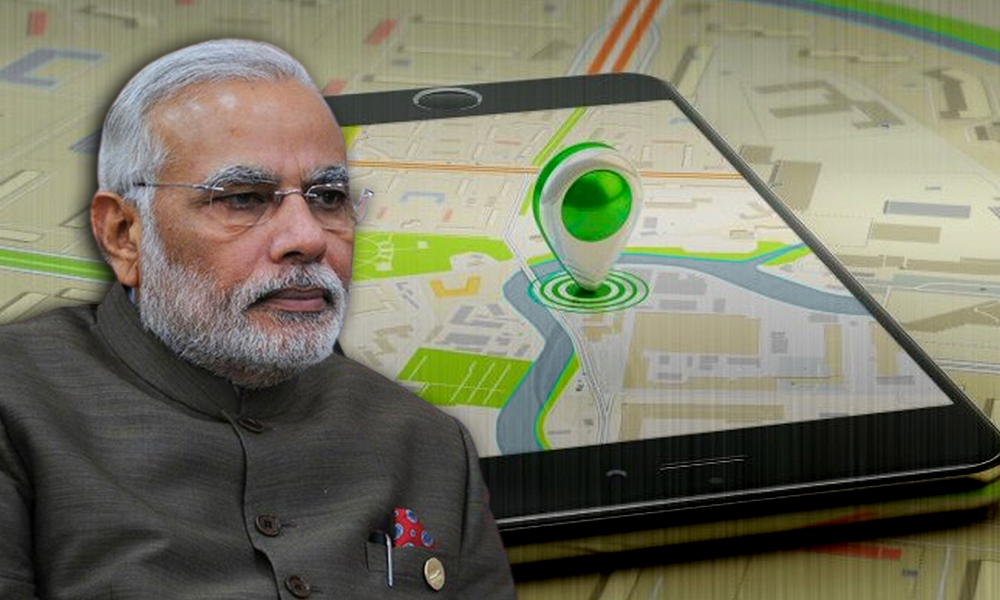
Credits: Wikimedia
Govt Liberalises Mapping Policies, Allows Free Access Of Geospatial Data To Private Players
Writer: Devyani Madaik
A media enthusiast, Devyani believes in learning on the job and there is nothing off limits when it comes to work. Writing is her passion and she is always ready for a debate as well.
India, 17 Feb 2021 8:04 AM GMT
Editor : Prateek Gautam |
A free soul who believes that journalism, apart from politics, should stand for social cause and the environment.
Creatives : Abhishek M
" An engineer by profession, Abhishek is the creative producer of the team, graphic designing is his passion and travelling his get away. In more ways than one, he makes the content visually appealing."
The move will help in boosting innovation in geospatial sector and create a level playing field for public and private entities.
The Union Ministry of Science and Technology on Monday, February 15, announced the liberalisation of policies governing the acquisition and production of the geospatial data.
The change in the mapping policy is part of the government's 'Atmanirbhar Bharat' campaign and aims to boost innovation in the sector and create equal opportunities for public and private entities.
Secretary of the Department of Science and Technology, Ashutosh Sharma, said that the sector would be deregulated under the new guidelines. The private companies would not need any prior approvals to conduct mapping and share the data for various applications.
For Indian companies, there will be complete deregulation without any prior approvals, security clearances, licenses, for acquisition and production of geospatial data and services, including maps, Business Standard reported.
Geospatial Data
Geospatial data represent objects, events, or phenomena that have a location on the earth's surface. It can be static and dynamic, from mapping the location of permanent structures, or the ones used by food delivery apps to help users track their orders.
Geospatial Sector In India
India's geospatial sector comes under the Centre and several central agencies including the Geological Survey of India. The previous policy required prior approval for collection, storage, use, sharing, and dissemination of data and mapping. Private companies were required to receive approvals from various government departments, and the ministries of home and defence. As the old policy was centralised for defence purposes, strict restrictions were imposed for security.
Prime Minister Narendra Modi said that the reform would benefit the country's farmers, private and public sector, startups and research institutions, paving the way for innovations and unlocking avenues for new businesses. This would further help in increasing employment opportunities.
Science and Technology Minister Dr Harsh Vardhan said that the new guidelines would act as a catalyst in achieving the vision of Atmanirbhar Bharat and the goal of a 5-trillion dollar economy.
Also Read: 'Will Investigate All Aspects Of Glacier Burst': Uttarakhand Irrigation Minister Satpal Maharaj
 All section
All section














